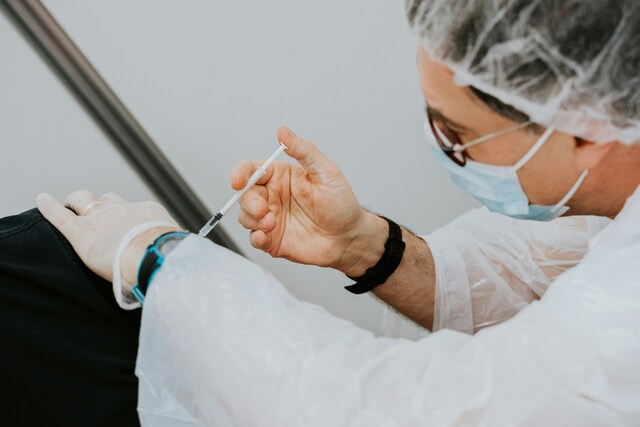Chief Health Officer Professor Ben Cowie is warning that cases of mpox continue to increase in Victoria and other Australian jurisdictions.
This outbreak is now the biggest in Victoria since the first case was reported in May 2022. As of 17 October, 330 mpox cases have been notified in Victoria since April 2024 and there have been 27 hospitalisations.
Mpox has mostly impacted gay, bisexual, and other men who have sex with men (GBMSM), although anyone can be affected. There have now been several cases in females in Victoria and heterosexual transmission has been reported.
All sexually active people with compatible symptoms should be tested, regardless of sexual orientation, vaccination status or travel history.
Remain aware of the possibility of mpox infection amongst other groups.
Mpox testing can be done in any primary care service (general practitioner) or sexual health clinic.
Vaccination should be promoted to all eligible people at risk of mpox, including second doses.
Free mpox vaccine is widely available for eligible people through sexual health clinics, hospitals, general practitioners, Aboriginal health services, councils and pharmacies.
People at risk of mpox should be aware of the current outbreak and take measures to protect themselves and others.
There is an outbreak of a more severe strain of the monkeypox virus (Clade Ib) in parts of central Africa. This strain has not been found in Australia so far, but there is a risk of importation through international travel.
In Victoria at present, GBMSM (including those who identify as heterosexual) and their sexual partners are most at risk. Venues or events where close intimate or sexual contact occurs carry a higher risk of mpox transmission, particularly where casual or group sex occurs.
However, anyone can become infected, and anyone who has been in close and usually prolonged intimate contact with someone with mpox is at risk. While vaccination decreases the risk of mpox, those who are vaccinated, particularly if not fully vaccinated, may still become infected.
Symptoms may include lesions or rashes anywhere on the body, including the anogenital area. Other symptoms may include pain on urination (urethritis) or rectal pain, bloody stools and/or diarrhoea (proctitis). General symptoms include fever, chills, tiredness, headache, sore throat, muscle aches and swollen lymph nodes. Most people experience mild illness and recover within a few weeks, but severe illness can occur.
Mpox can spread from person-to-person through close (skin-to-skin) or prolonged contact, for example during sexual contact, as well as contact with contaminated items or surfaces, and respiratory droplets. Symptoms can occur up to 21 days after being exposed to mpox.
















